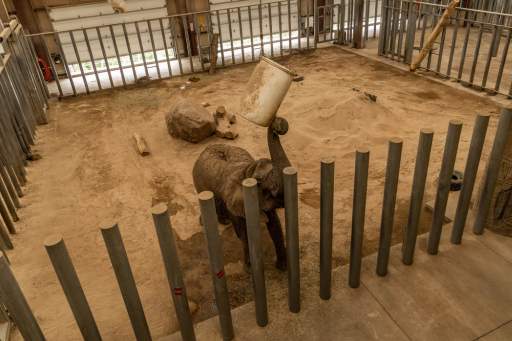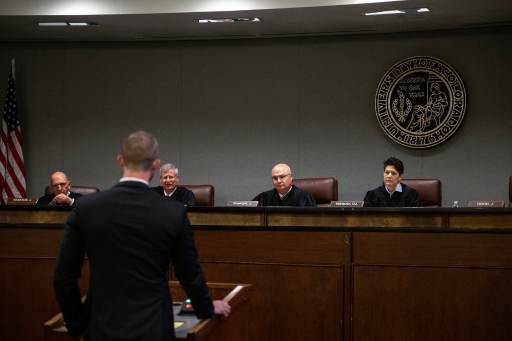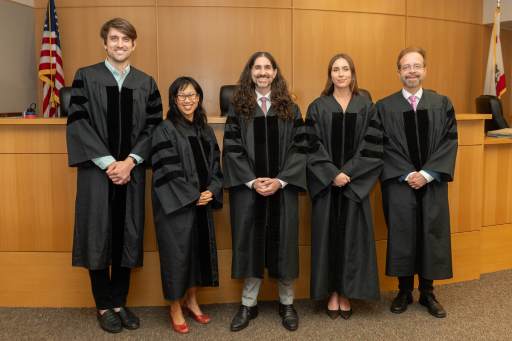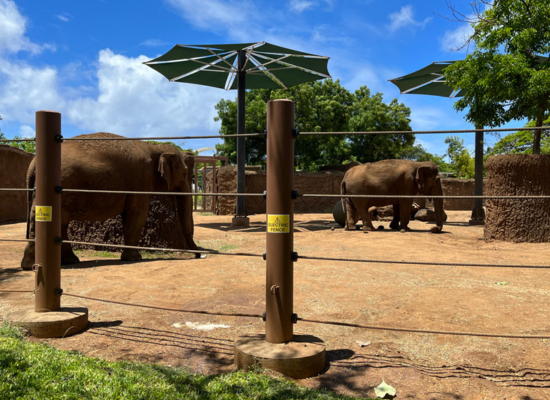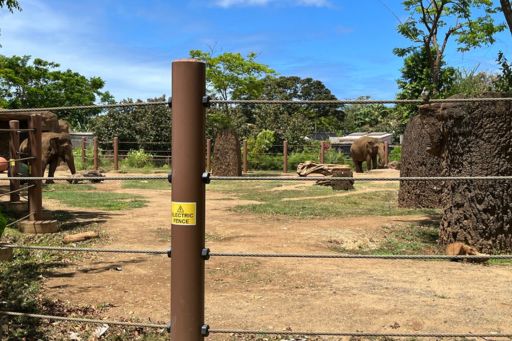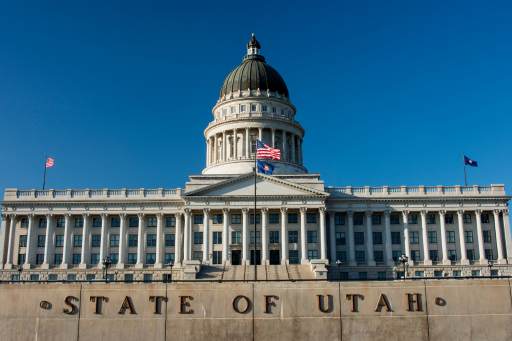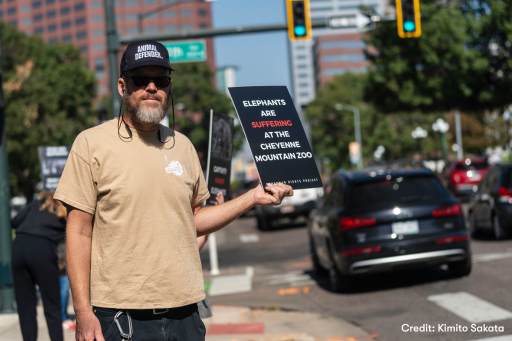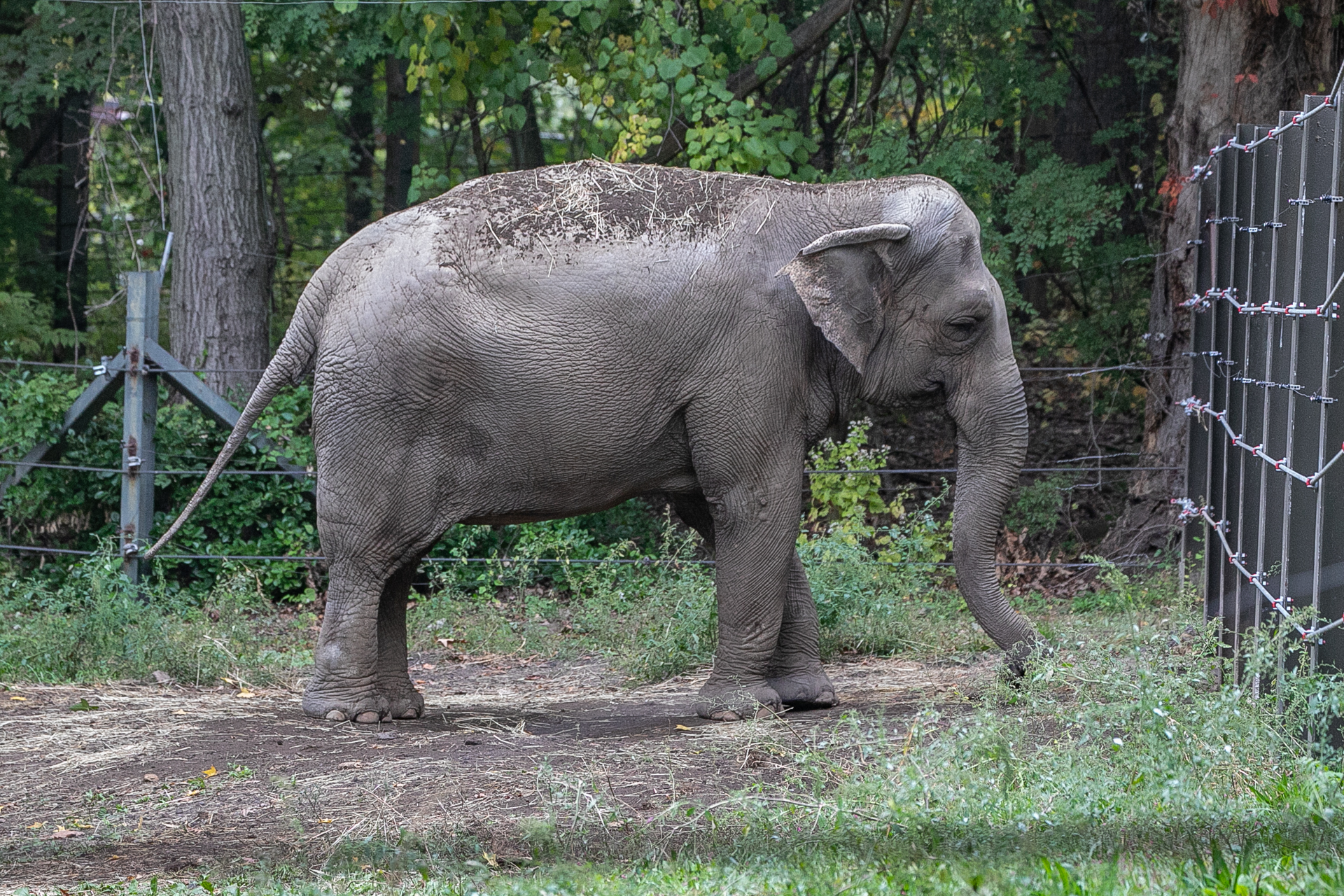In 2024, five of the NhRP’s elephant clients became the first nonhuman animals in Colorado and the American West to have a hearing on whether they are entitled to a legal right: specifically, the fundamental right to liberty protected by the common law writ of habeas corpus.
The hearing took place in Colorado’s highest court on a sunny October day as over 200 people looked on, including NhRP supporters, local media, and professors and law students from the University of Colorado Law School (invited to attend as part of Colorado’s “Courts in the Community” program). Over the course of an hour, the judges asked probing, pointed questions of both NhRP Senior Staff Attorney Jake Davis (arguing on the elephants’ behalf) and John Suthers, former US Attorney for Colorado and former mayor of Colorado Springs (arguing on the zoo’s behalf). As Jake emphasized, the elephants held captive in the Cheyenne Mountain Zoo shouldn’t be deprived of justice simply because they aren’t human.
Three months after this hearing, the Colorado Supreme Court upheld a lower court’s dismissal of the elephants’ case, concluding that the state’s habeas corpus statute applies only to humans “no matter how cognitively, psychologically, or socially sophisticated” a nonhuman animal may be. In so doing, the Colorado Supreme Court incorrectly deferred to the legislature to limit the scope of the common law of habeas corpus, which is a critical judicial safeguard of civil liberties dating back to the Magna Carta.
Despite the Court’s decision, the elephants’ habeas hearing remains an important mark of progress for animals: not only because, for the purpose of the hearing, our clients were treated like someone rather than something, but also because it gave us another opportunity to directly challenge an unjust system. This case, like other NhRP cases, involves directly representing our nonhuman clients to stop an ongoing injury to their right to liberty. The injury under consideration was the elephants’ own. By contrast, virtually all other animal law cases are technically brought on behalf of human interests. The Cheyenne Mountain Zoo elephants’ case presented a question that hadn’t been asked before in Colorado: if liberty is such an important value in our legal system, why must it be withheld simply because an individual isn’t human? Asking this question–and pressing for an answer–is itself a form of progress.
Overall, this hearing signals that the issue of legal rights for nonhuman animals has become a significant and important question that courts may not reflexively dismiss and that there’s room in our legal system to answer the question of whether nonhuman animals have an interest in liberty that should be protected by the courts.


